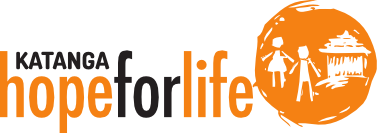The Government's Role in Private Education in Uganda
Joshua works as the Programs Manager in Advocacy for John Paul ii Justice and Peace Centre, promoting awareness and providing creative responses to issues of Justice and Peace throughout Uganda. He gained a Bachelors degree in Education, majoring in economics and history, and a Masters in Peace & Conflict Studies.
Joshua is also a co-founder of Hope for Life Katanga.
It’s time for the government to regulate private schools and institutions of learning
By Joshua Mutebe
A lot has been said on this subject over the years by many parents and guardians but the efforts to address the frustration and the challenges encountered have not been forthcoming from the concerned party, which in this case is the government. In the past the government of Uganda had restricted private players into management, ownership and startup of primary and secondary schools. However, in the 1980s due to overwhelming demand for inclusive education that can be accessed by children in rural and urban areas, the government adopted new polices of privatisation, liberalisation and regulation to enhance improvements and expansion of the education sector.
On its part, government promised to play an overall responsibility of coordination, regulation, policy formulation and guidance on all matters regarding private schools and institutions through its department of private schools and institutions under the Ministry of Education and Sports. Unfortunately, the current state of affairs clearly shows that the government has failed to deliver on the above promise and has surrendered its regulatory responsibility/duty to school entrepreneurs.
Essential to say is that privatisation of education has not been accompanied with robust regulation and, as a result, it has become exploitative on the side of parents. Majority of schools ask for items like paint preferably sadolin, jik, a panga, scrubbing brushes, a ream of both duplicating paper and ruled paper etc.
In light of all the above, many privately owned primary and secondary schools have continuously increased tuition fees and school requirements as when they wish and sometimes without consultation and mutual agreement with the parents/guardians. Many school entrepreneurs and business owners argue that the government cannot regulate them in the prevailing circumstances due to the fact that there is limited support provided to private institutions and, to make matters worse, it’s the responsibility of the government to provide quality education to all children in the country. Others argue that the increasing demands by schools are justifiable to maintain high academic standards; a scenario loved by all parents and guardians. Thus they cannot compromise on that amidst stiff competition from their counterparts.
As a concerned parent, these experiences have showed me that the cost of education is not commensurate with the outcomes produced with lack of artisan skills to enhance social-economic transformation, yet this is the bedrock of developed economies in Europe and Asia.
I am therefore convinced that it’s time for the government to redefine what it entails to have quality education for our children in primary and secondary schools and unless government takes serious strides to address this existing status-quo, we will remain where, whoever wishes to establish a private school can easily do it as long as one fulfils the minimum requirements as defined by our legislative framework.
If you would like to contribute to the conversation then add your comment to the comments section below. Over the next month we will be expanding on Joshua's concern for education in Uganda, by looking at political philosophy and Uganda's historical context, before looking at the present day situation. We will also be hearing individuals personal experiences of the education they received, including through sponsorship programs, both good and bad.


